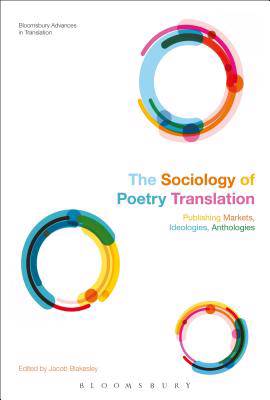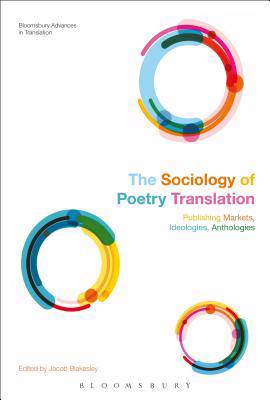
- Retrait gratuit dans votre magasin Club
- 7.000.000 titres dans notre catalogue
- Payer en toute sécurité
- Toujours un magasin près de chez vous
- Retrait gratuit dans votre magasin Club
- 7.000.0000 titres dans notre catalogue
- Payer en toute sécurité
- Toujours un magasin près de chez vous
Description
While the sociology of literary translation is well-established, and even flourishing, the same cannot be said for the sociology of poetry translation. Sociologies of Poetry Translation features scholars who address poetry translation from sociological perspectives in order to catalyze new methods of investigating poetry translation. This book makes the case for a move from the singular 'sociology of poetry translation' to the pluralist 'sociologies', in order to account for the rich variety of approaches that are currently emerging to deal with poetry translation. It also aims to bridge the gap between the 'cultural turn' and the 'sociological turn' in Translation Studies, with the range of contributions showcasing the rich diversity of approaches to analysing poetry translation from socio-cultural, socio-historical, socio-political and micro-social perspectives.
Contributors draw on theorists including Pierre Bourdieu and Niklas Luhmann and assess poetry translation from and/or into Catalan, Czech, English, French, German, Italian, Russian, Slovakian, Spanish, Swahili and Swedish. A wide range of topics are featured in the book including: trends in poetry translation in the modern global book market; the commissioning and publishing of poetry translations in the United States of America; modern English-language translations of Dante; women poet-translators in mid-19th century Ireland; translations of Russian poetry anthologies into modern English; the translation of Shakespeare's plays and sonnets in post-colonial Tanzania and socialist Czechoslovakia; translations and translators of Italian poetry into 20th and 21st century Sweden; modern European poet-translators; and collaborative writing between prominent English and Spanish poet-translators.
Contributors draw on theorists including Pierre Bourdieu and Niklas Luhmann and assess poetry translation from and/or into Catalan, Czech, English, French, German, Italian, Russian, Slovakian, Spanish, Swahili and Swedish. A wide range of topics are featured in the book including: trends in poetry translation in the modern global book market; the commissioning and publishing of poetry translations in the United States of America; modern English-language translations of Dante; women poet-translators in mid-19th century Ireland; translations of Russian poetry anthologies into modern English; the translation of Shakespeare's plays and sonnets in post-colonial Tanzania and socialist Czechoslovakia; translations and translators of Italian poetry into 20th and 21st century Sweden; modern European poet-translators; and collaborative writing between prominent English and Spanish poet-translators.
Spécifications
Parties prenantes
- Auteur(s) :
- Editeur:
Contenu
- Nombre de pages :
- 280
- Langue:
- Anglais
- Collection :
Caractéristiques
- EAN:
- 9781350043251
- Date de parution :
- 29-11-18
- Format:
- Livre relié
- Format numérique:
- Genaaid
- Dimensions :
- 160 mm x 236 mm
- Poids :
- 544 g

Les avis
Nous publions uniquement les avis qui respectent les conditions requises. Consultez nos conditions pour les avis.






